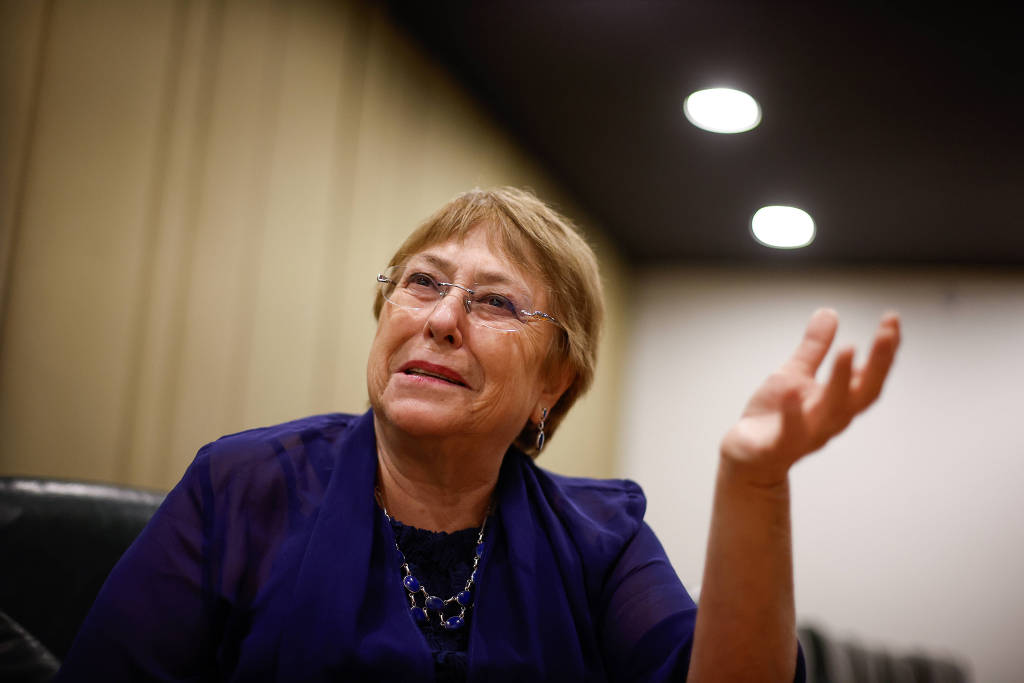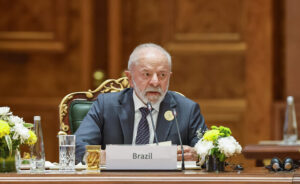
Published 15/02/2025 15:15
The Chilean Social Democrats expressed support for Michelle Bachelet’s possible candidacy for the country’s presidency in 2025. In a statement released on Wednesday (12), the caption highlighted the social and economic advances of its governments and defended the construction of a progressive block regional to contain the growth of the far right on the continent.
The statement mentions that Bachelet management had an impact on areas such as social protection, education and labor rights. “The leadership role that Bachelet still plays in society is unquestionable, which causes her to cover any list of candidates for the presidency of the Republic,” the statement says.
Among the policies cited are the reform of the social security system, which combined individual capitalization pillars and solidarity protection, as well as the expansion of trade union rights, the legalization of abortion in three causals and changes in the electoral system.
The position of social democrats occurs at a time when the former president records growth in voting intentions. According to Ciudadano pulse survey, conducted in January 2025, Bachelet rose from 10.2% to 12.2% in spontaneous preferences. The study also pointed out a drop in support for former presidential candidate José Antonio Kast of the Republican Party, which went from 11.7% to 9.6%.
Regional articulation to contain the far right
In addition to the Chilean electoral context, social democrats mentioned the possibility that Bachelet participates in an articulation with Lula, Brazil, and Yamandú Orsi, in Uruguay, forming a regional progressive axis. The initiative aims to strengthen social policies and contain the influence of right -wing governments in Latin America.
“The president has the credentials to build, with Lula and Orsi, a Brazil-Uruguay-Chile axis that balances the region, replacing the progressive, social democratic and economic development policies in the foreground,” says the statement
The document points out that the formation of this political front could act as a counterpoint to the advance of the far right in countries such as the United States, under Donald Trump, and Argentina, with Javier Milei. The party also emphasized the need for unity within the Chilean center, arguing that broad alliances would be essential to the 2025 electoral result.
Chile’s political scenario and challenges
Chilean elections take place at a time of political polarization, in which topics such as public safety, immigration and economics dominate the electoral debate. According to the Ciudadan Pulse survey, crime is the main concern of the population, cited by 47.6%of respondents, followed by immigration (32%) and drug trafficking (22.9%).
In the legislative level, the social security reform recently approved by the congress continues as a theme of debate. The study points out that 37.9% of Chileans believe that the measure will be positive for the country, while 35% evaluate that the impact will be negative.
Social democrats suggested that a center-left government program could prioritize measures such as sustainable economic growth, expansion of social protection and a structured migratory policy. In addition, they mentioned the need for reforms to strengthen transparency in the public service and a security agenda aimed at combating organized crime.
Possibility of application and projections
Bachelet has not yet confirmed if he will be a candidate, but his growth in the polls and the political support received indicates that his participation may be a central factor in the electoral scenario. The document of social democrats stresses that its government history and international experience maintain it as a relevant leadership for the Chilean center left.
With the right divided between José Antonio Kast and Evelyn Matthei, and Gabriel Boric’s government facing popularity challenges, Bachelet’s eventual candidacy can represent an axis of reorganization for the country’s progressive sectors.
The presidential elections are expected to take place in November 2025, and the coming months will be decisive for the definition of alliances and candidacies.
Source: vermelho.org.br

